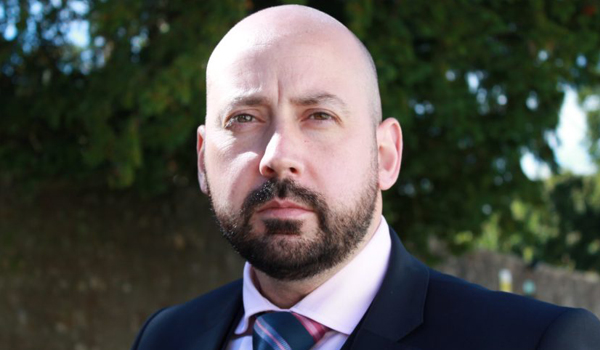Chief constable’s claim force is ‘institutionally racist’ has damaged officers’ reputation, says SPF
The Scottish Police Federation (SPF) says Police Scotland’s chief constable “has damaged the reputation of officers and staff” after he said the force was “institutionally racist and discriminatory”.
Addressing a meeting of the Scottish Police Authority (SPA) last week, Sir Iain Livingstone QPM said “publicly acknowledging these institutional issues exist is essential to our absolute commitment to championing equality and becoming an anti-racist service”.
However, in a letter to Sir Iain, SPF General Secretary David Kennedy said: “No matter how much context you gave and qualifications you made or how you tried to reassure us that you were not labelling individual police officers as racist, sexist, misogynistic or discriminatory, that is how it was interpreted by many within and out with the service.
“This has damaged the reputation of our officers and staff as a direct consequence. To ‘become’ an anti-racist service pre-supposes that it is currently a racist service.
“The little justification you gave for coming to these conclusions seemed to found on the actions of individuals and not systemic failures.
“It would help our understanding if you could provide detail on which processes, attitudes and behaviour or policies or practices amount to discrimination.”
Mr Kennedy added: “It is our view that the police service in Scotland has never failed to provide an appropriate and professional service to people because of their colour, culture or ethnic origin.
“With the exception of an issue related to flexible working, which was resolved, and the ongoing debate relating to beards, we believe police service in Scotland has never had processes, attitudes or behaviours which amount to institutional discrimination.
“In any organisation of 23,500 people in the UK, it would be incredible if there were not a number of racists, sexists and misogynists. If the question is, ‘has every person who ever worked for the police either as a police officer or member of the support staff always lived up to the high standards expected of them in this regard?’, then the answer is ‘no’.
“Individuals have failed. The reasons for these failures may be ignorance, insensitivity, racism, sexism, misogyny, or some other reason. But the important point is that the failures are individual failures and not organisational failures.”
Mr Kennedy wrote that in one of many contacts the SPF had received from members, one has said: “This statement will be seen and heard by the public who will take the word of the person in charge and believe that all officers are the aforementioned things (racist, sexist, misogynistic), which is categorically wrong. Frontline officers’ jobs are difficult enough and now this will add to the abuse and hatred we face on a daily basis.”
The SPA said “unwitting prejudice, ignorance, thoughtlessness and stereotyping exists in every part of our society and I would challenge any organisation to acknowledge its existence in their service or sector”.
It described the chief constable’s comments as a “watershed moment”, adding: “It is widely accepted that policing is not immune to the discrimination that exists in our society.
“Acknowledging that the processes, attitudes and behaviours of an organisation are discriminatory – however unconsciously that may be – is the crucial next step for effective organisational development.
“Police Scotland have put an enormous amount of work in to the strategies and process to drive a positive and anti-discriminatory culture.
“The authority is confident that this marks that moment for policing – one that moves the focus from continually describing problems within Police Scotland to ‘what and how we change’.”
The SPA said there will be “two small, but very vocal groups, for whom this move to focus on change will be unwelcome”.
“First, those who think that all police services and indeed all police officers are irredeemably discriminatory. For them there is no optimism for policing. For them, all change is futile as policing is and always will be hopelessly and irreparably discriminatory,” it said.
“The second group are those who refuse to accept there is any institutional or individual discrimination in policing. For them change is wholly unnecessary. In their eyes no change is needed because there is no problem.
“We live in an increasingly polarised society. Given these two rather absurd extremes – hopelessness at one end and complacency at the other – we should be very wary of either pushing or pulling us into their camp.
“Both are complete dead ends.
“The authority is grateful to the chief constable, his senior team and Police Service of Scotland as a whole. It takes a very advanced degree of realism, self-reflection, strength, effort and courage to reach this point.
“Making change, measuring that change and increasing the pace of that change is now crucial and will be the test of sincerity.”


